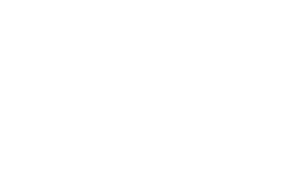Pakistan plays down David Cameron's terror comments
- Published

Leaked documents accuse Pakistani intelligence of helping Afghan militants
Pakistan says it expects "fruitful" talks between its president and David Cameron despite the prime minister's comments over its alleged terror links.
Intelligence officials have cancelled a UK visit after Mr Cameron said Pakistan should avoid links with groups that "promote the export of terror".
But the country's information minister said President Asif Ali Zardari's visit would go ahead as planned on Tuesday.
Qamar Zaman Kaira said relations between the countries remained strong.
He said any confusion over Pakistan's commitment to tackling terrorism would be cleared up during the visit.
'Co-operation'
"We will put the record straight and we believe after that the co-operation will keep on going," he said.
"We are in co-operation with the United Kingdom to support anti-terror activities... so our co-operation will keep on going. We want to strengthen our relationship."
Wajid Shamsul Hasan: "They were singled out for criticism... but the president's visit must continue"
Describing Mr Cameron's statement as "a misperception", Mr Kaira said that Mr Zardari would use the opportunity to "explain the facts" to the PM during talks at Chequers on Friday.
Speaking to reporters after a speech in the southern Indian city of Bangalore on Wednesday, the prime minister said: "We should be very, very clear with Pakistan that we want to see a strong, stable and democratic Pakistan.
"We cannot tolerate in any sense the idea that this country is allowed to look both ways and is able, in any way, to promote the export of terror, whether to India or whether to Afghanistan or anywhere else in the world."
His remarks followed the leaking of US documents on the Wikileaks website in which Pakistan's Inter Services Intelligence (ISI) agency was accused of secretly helping the Afghan insurgency.
'Double game'
On Saturday, opposition politicians in Pakistan urged Mr Zardari to call off his trip, while demonstrators burnt an effigy of the prime minister on the streets of Karachi.
Pakistani security sources confirmed the cancellation of the visit was as a direct result of Mr Cameron's comments.
They said his suggestion Pakistan was playing a "double game" in Afghanistan had caused a great deal of anger within Pakistan's security establishment, government and civil society.
Furious Pakistani foreign office statements have pointed to sacrifices made by the country.
David Miliband: "David Cameron still seems to be intent on making headlines"
Mr Cameron's spokeswoman insisted he was talking about Pakistan as a country, not its government.
She said that the main message was for Pakistan to shut "terror groups" down.
Former ISI head, retired General Hamid Gul, said Mr Cameron's comments were a "huge mistake" and had upset the entire Pakistani nation.
He told 91热爆 Radio 4's PM programme: "The UK had always maintained a very delicate balance between India and Pakistan and this has been rather rudely broken.
"And this has upset many Pakistanis, in fact the entire nation is really up in arms, but more than that, I don't see the sagacity in it, the wisdom."
Shadow foreign secretary David Miliband said the cancellation of Pakistan's Intelligence Service counter terrorism conference was "clearly bad news".
'Deep disarray'
"The prime minister's comments this week told only part of the story and that has enraged people in Pakistan. It is vital he shows that he understands the need not just for Pakistan to tackle terrorism but that he will support them in doing so and understand the losses they have suffered."
Sir Hilary Synott, former British High Commissioner to Pakistan, said the fact that the comments were made in India would annoy Pakistan.
But he said India and Britain had shared interests as both countries had been affected by the activities of groups such as Lashka-e-Toiba and Hakani network.
He told 91热爆 Radio 4's Today programme: "It's quite clear Pakistan hasn't been controlling these groups sufficiently, so there comes a time and it's for a politician to judge this time, when these matters have to be said more strongly."
Dr Farzana Sheikh, associate fellow at Chatham House think tank, said there was "deep disarray" inside the ranks of the Pakistani government, with the intelligence officials and military "clearly at odds" with the political leadership over how to react.
- Published29 July 2010
- Published28 July 2010